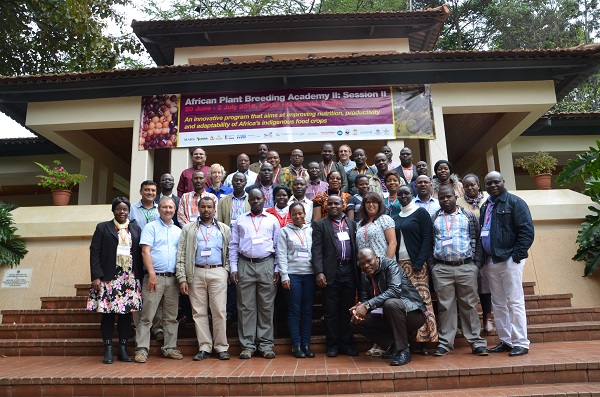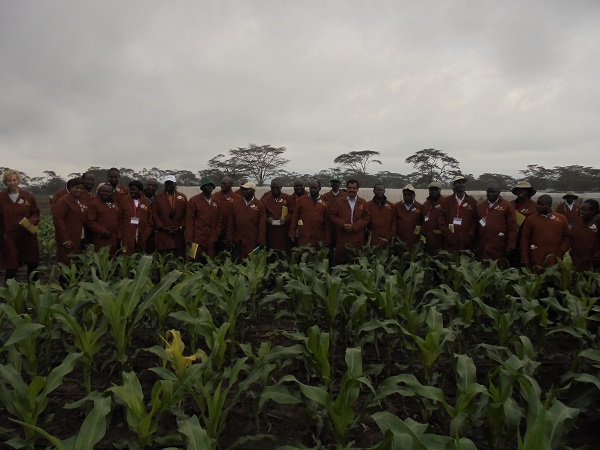
NAIROBI, Kenya (CIMMYT) – “The focus of the CIMMYT Global Maize Program includes elements that are key to many breeding programs in Africa. It has made important strides in sub-Saharan Africa.”
These words were delivered by Rita Mumm, a member of the International Maize and Wheat Improvement Center (CIMMYT) board of trustees and the coordinator of the Africa Plant Breeding Academy (AfPBA), which recently benefited from a wealth of knowledge shared by the CIMMYT Global Maize Program (GMP) team in Africa at the AfPBA training program held in June 2016 at the World Agroforestry Center.
The AfPBA is an initiative of the African Orphan Crop Consortium, a partnership of public and private organizations working together to sequence 101 crops of economic and nutritional importance to Africa. Students at AfPBA undergo a 13-month continuing education program delivered in three two-week sessions to learn about principles of plant breeding to enable use of advanced tools and technologies in breeding of crops relevant for Africa.
The CIMMYT team led by B.M Prasanna, director of CGIAR Research Program MAIZE and CIMMYT-GMP interacted with the trainees of the most recent session of the academy. The session was attended by 29 Ph.D. and master’s level scientists – including seven women – from 17 countries across Africa. The focus of the interactive session was to share knowledge on maize breeding work in sub-Saharan Africa and highlight the progress made in addressing various biotic and abiotic stresses affecting smallholders’ maize productivity in Africa.
The scientists learned about maize breeding work to develop improved maize varieties with farmer-preferred traits. In particular, drought tolerance, nitrogen-use efficiency, nutritional enhancement, and disease resistance. In addition, presentation focused on the use of such modern technologies to increase efficiency and enhance genetic gains in tropical maize as molecular marker-assisted breeding and doubled haploid technology for maize improvement.

Collaborative efforts to strengthen the maize seed system for African farmers to access the improved new varieties was explained, as was the progress made with partners to increase farmer adoption as well as to replace the old varieties with the new climate resilient maize varieties.
“This is just one example of CIMMYT’s capacity development efforts that gives tremendous satisfaction. These breeding stories and highlights from Africa could have potential positive impact on the young scientists, as they are the key to further developing and deploying products that can make a difference in the livelihoods of the resource-poor smallholders in Africa,” said Prasanna.
The highlight of the training for many of the participants was the tour to the Maize Lethal Necrosis (MLN) Screening Facility at Naivasha established jointly by CIMMYT and the Kenya Agricultural and Livestock Research Organisation (KALRO) to screen germplasm against MLN (under artificial inoculation), including germplasm from several private and public institutions. The participants received hands-on training to identify symptoms of MLN-causing viruses and how to score MLN disease severity by screening germplasm at the site. In addition, a demonstration was conducted on screening for MLN through artificial inoculation.
“Our global and regional mandate gives us the opportunity to support scientists across Africa to build their capacity in plant breeding work as well as in socioeconomics and sustainable intensification practices. Scienstists get the opportunity to learn, share their experiences and grow further. Through such trainings, we see improvements in technology uptake and use in various countries and regions across Africa,” said Stephen Mugo, CIMMYT regional representative for Africa.
In addition to the CIMMYT team, instructors included Lago Hale from the University of New Hampshire, Bruce Walsh from the University of Arizona, Allen Van Deynze from the University of California–Davis, and Rita Mumm from the University of Illinois.
 Capacity development
Capacity development 
